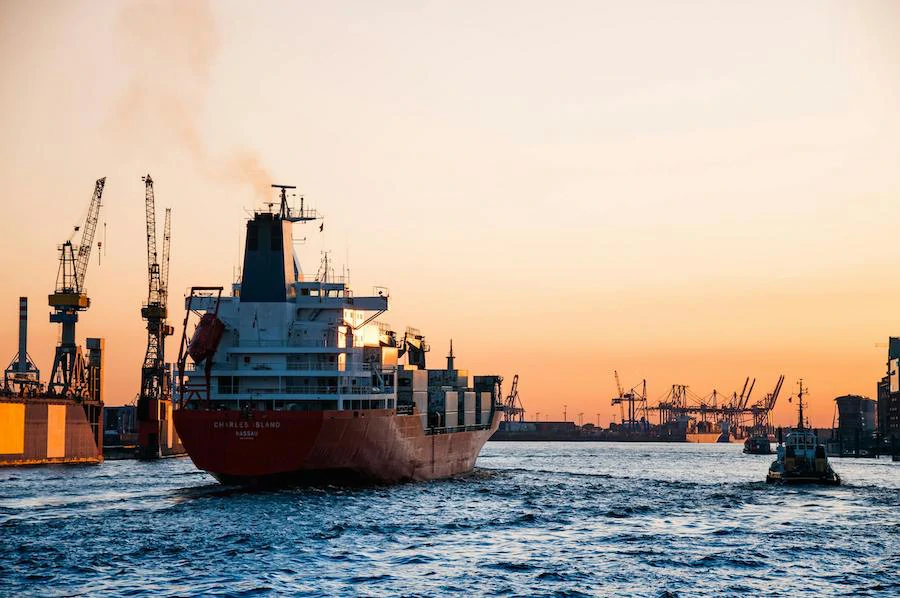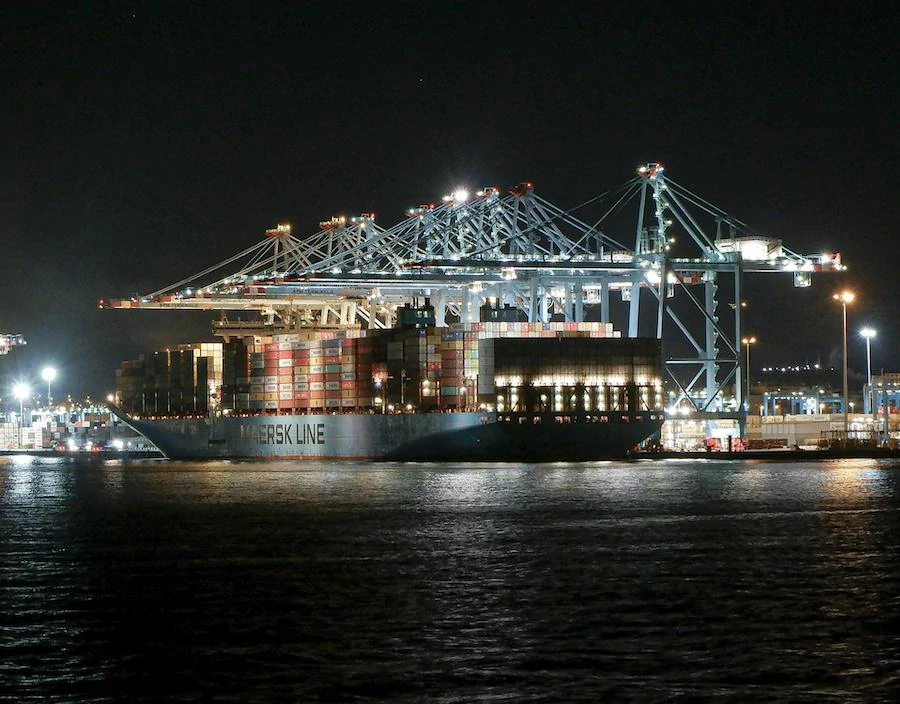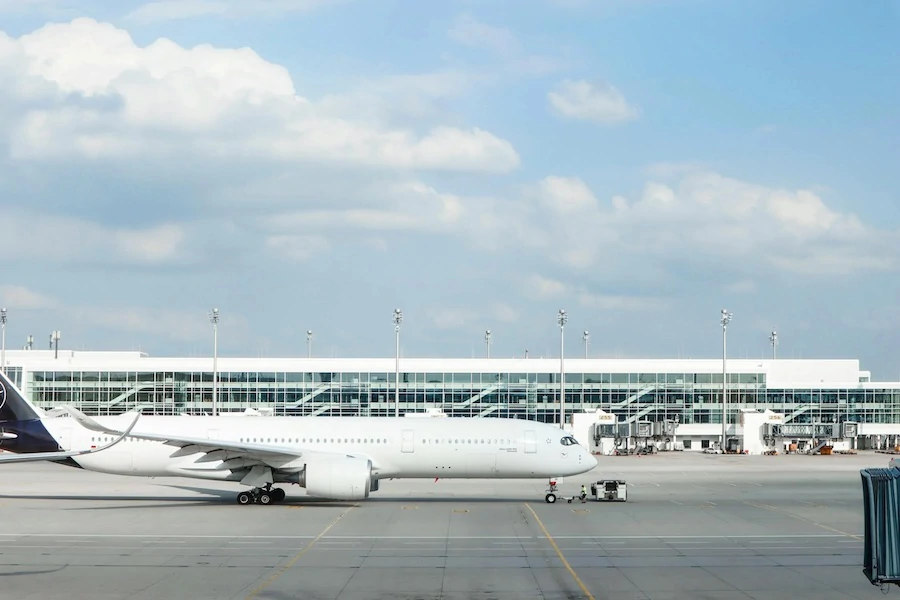Ocean and Ports
Maersk CEO Vincent Clerc has noted that the upcoming months will pose significant challenges for both carriers and businesses as the Red Sea situation extends into the third quarter of 2024.
During a recent virtual event with customers, Vincent Clerc addressed the issues caused by ongoing attacks on vessels in the Red Sea and the Gulf of Aden. Which have disrupted logistics and supply chains. Currently, Maersk ships are rerouting around Africa, passing by the Cape of Good Hope in South Africa. Clerc acknowledged the difficulties this situation presents for carriers and companies relying on cargo transport.

We are faced with these challenges together and we need to make sure that we stay close to them as we handle the new set of circumstances that continues to unfold in front of us. These disruptions, and the impact they are having on your business, is not something that I, nor any colleagues at Maersk, take lightly. We know it is hard. We know it is difficult for you. We know it puts you under a lot of pressure.
Vincent Clerc
CEO, A.P. Moller – Maersk
The Impact on Supply Chains
Clerc discussed the “significant impacts” the Red Sea situation has had since it began in December 2023. He explained that rerouting ships around Africa adds the need for two to three additional vessels, depending on the specific trade. Initially, available capacity was already limited, and carriers across the industry have faced challenges in securing extra tonnage. Despite these obstacles, demand for container transport has remained strong.
Preparations for demand spikes around the Lunar New Year helped to mitigate some of the disruption in the first quarter of 2024. However, the challenges have become more severe since April and May.
Another significant issue for carriers has been the rising costs. The extended journeys and reduced capacity have driven up the price per container considerably. Maersk has absorbed these costs, recognizing that many of them will persist beyond the Red Sea crisis. For instance, ships cannot be chartered for just a few months to address the current shortages. Instead, carriers are forced to commit to multi-year contracts at higher rates. This has contributed to temporarily elevated freight rates.

Clerc emphasized that Maersk would only resume sailing through the Red Sea and the Gulf of Aden when the safety of seafarers, vessels, and cargo could be assured. Once the situation is resolved, some ships could quickly return to their regular routes through the Suez Canal. While others would need to finish their journey around the Cape of Good Hope. Clerc cautioned that this overlap of ships arriving via different routes might lead to temporary port congestion before operations stabilize again.
Today, all ships that can sail and all ships that were previously not well utilised in other parts of the world have been redeployed to try to plug holes. It has alleviated part of the problem, but far from all the problem across the industry, including for Maersk. We are going to have in the coming month missing positions or ships that are sailing that are significant different size from what we normally would have on that string, which will also imply reduced ability for us to carry all the demand that there is.
Vincent Clerc
CEO, A.P. Moller – Maersk
Air Freight
According to the latest data from the International Air Transport Association (IATA), the global air cargo market is showing continued signs of profitability improvement for 2024. The airline industry is expected to handle a total air cargo volume of 62 million tonnes in 2024. Playing a crucial role in supporting $8.3 trillion worth of global trade.
With the industry gradually returning to pre-pandemic patterns, there is a correction phase following the extraordinary performance seen in 2021. North America remains a key driver of industry profits, with strong yields and consumer spending fueling revenue growth.

At Maersk, we remain dedicated to our air freight solutions, especially in light of ongoing disruptions in ocean transport. Our service operates seamlessly via Tanjung Pelepas (TPP), connecting to our hubs in Singapore and Kuala Lumpur. This offers a cost-effective option, blending air and ocean transport. Customers can benefit from our unique TPP service, which significantly reduces transit times from the typical 23-60 days to approximately 12-16 days when shipping from Asia to various markets.
Focus Areas
Home Delivery World (HDW) is a leading event focused on Last Mile Logistics, bringing together industry experts and customers from across North America to explore the latest developments in parcel delivery, heavy goods, and digital supply chain trends. Now in its 12th year, HDW has grown to cover every aspect of retail logistics and the supply chain, from warehouse inventory management and fulfillment to delivery and enhancing the customer experience. This event is highly relevant for our Ground Freight and Ecommerce clients who are seeking innovative solutions and strong partnerships to improve every facet of freight movement and home delivery.
For Maersk and our customers, HDW offers an excellent platform for face-to-face networking and collaboration with solution providers, allowing us to advance our thinking and enhance our service capabilities. It’s also a valuable opportunity for us to broaden our understanding of the market, identify services that align with customer needs, and maximize value. Most importantly, it pushes us to embrace new innovations and improve our service offerings, helping you leverage your supply chain to deliver greater business and customer value. This year’s conference allowed us to form new connections and strengthen existing relationships by hearing firsthand about the challenges customers face. The panel discussions provided valuable insights into planning, predictive analytics, technology and automation, visibility, and, of course, improving customer service and delivery methods.